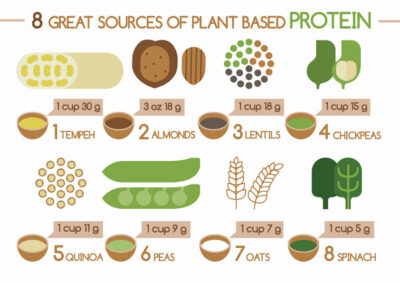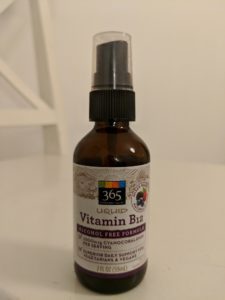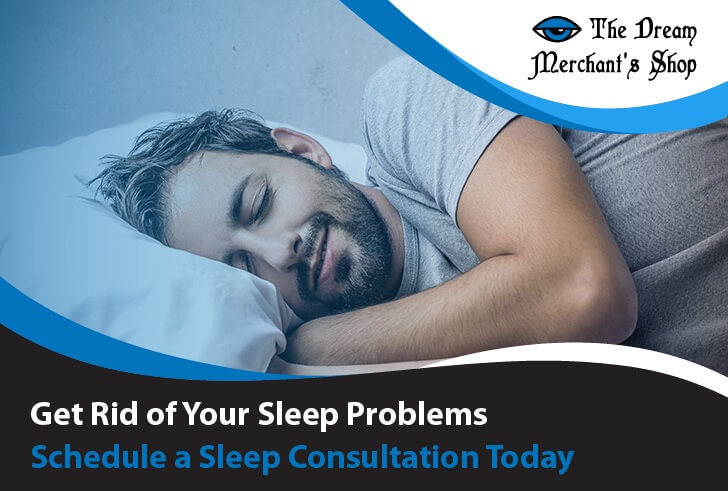Sleep disorders can take a variety of forms. You may indeed have a sleep disorder and not even know it. What you eat has a massive impact on the severity/existence of your sleep disorder. There’s no “magic bullet” in this regard though. It looks like a host of varied nutrients consist of ideal sleep nutrition and are needed for proper sleep. In general, stick to a low-glycemic diet, and try to eat as diversely as possible. Organic, whole plant-based foods are recommended. Keep a close eye (and possibly a diary) on your sleeping and eating habits, to identify the problems.
The fact that what you eat and the quality of your sleep are inter-connected, is obvious to everyone. Who hasn’t experienced a bad night’s sleep due to a spoiled stomach, which in turn resulted from the ingestion of something that did not agree with it? The issues I’m about to discuss in this article reach way above and beyond the obvious though.
Your sleep quality in general is massively influenced (for the better or worse) by what you eat.
Science has progressed by leaps and bounds on this matter lately. The good news is that the role of various macro- and micro nutrients in sleep is now rather well-known. The bad news, on the other hand, is that science still hasn’t managed to come up with a sort of perfect “recipe” that would give people exact recommendations on what they need to eat to sleep well and to be rid of sleep disorders.
In my previous article, I covered the link between the digestive system (gut) and sleep/sleep disorders. As I made it clear there, this link is everything but simple. Above and beyond how food impacts the gut flora though, there’s an equally convoluted nutritional aspect to this equation too.
The problem from the nutritional perspective is that there are complex interdependencies between the various nutrients involved, and thus none of them can be considered on a stand-alone basis.
Let us take a closer look though at some of the facts science has thus far delivered results-wise.
Before we delve into how different sleep disorders are impacted by various nutrients, we need to redraw our understanding of what constitutes a sleep disorder.
As soon as they hear “sleep disorder” people immediately think of insomnia and/or sleep apnea. While both of those conditions are indeed serious sleep disorders, they’re but the tip of the iceberg in this regard.
Anxiety/depression also results in sleep disorders. If you find yourself feeling out-of-the-place drowsy during the daytime – when you should normally be up and about – you also have a sleep disorder. Other such sneaky sleep-related problems include forgetfulness, brain fog, scalloped tongue, cold extremities, sleeping on your stomach and teeth grinding.
Above and beyond these conditions though, nutrition has a link to sleep health (and by extension: overall physical health) as well.
One such obvious link is the one between sleep deprivation and weight issues. This is a two-way street though. We now also know that nutrition impacts sleep quality, sleep architecture (the length of various sleep-phases), the circadian rhythms (which I directly linked to the internal rhythm of the digestive system in my previous article), as well as sleep disorders, such as sleep apnea, hypersomnia and insomnia.
It is interesting that diet has been linked to actual sleep-time length. Decreased variety diet-wise apparently results in both shorter-than normal and longer-than normal sleep times. Alarmingly, the presence of illnesses such as cancer, has been shown to elicit rather similar changes in sleep times.
The most relevant study in this regard is a Women’s Health Initiative one the sample-size of which (some 459 test subjects) makes it very legitimate indeed. The methods used in the said study, as well as the fact that besides total fat, saturated, non-saturated and trans fats were tracked, together with an impressive number of other nutrients, lend it more practical value still.
How do you tackle your sleep apnea through nutrition though?
Interestingly, for solutions to this specific problem, we have to look at the micronutrient category, more specifically at vitamins, where vitamin B, C and E seem to play the biggest roles.
Vitamin B has a positive effect on circadian cycles and sleep in general, but vitamin C delivers concrete benefits to the circulatory system, more precisely to the health of the blood vessels. This is extremely important, since blood vessels bear the brunt of the damage caused by the condition.
Apparently, vitamin C is potent enough to completely eliminate the ill-effects of sleep apnea on blood vessels.
Vitamin E, on the other hand, addresses oxidative stress, working synergistically with vitamin C. Indeed, oxidative stress is another major problem caused by sleep apnea.
Sleep apnea causes a number of vitamin deficiencies too, among which vitamin D and vitamin A problems are the most prominent. It is thought that these deficiencies actively contribute to the cardio-vascular complications often experienced by sleep apnea sufferers.
Selenium is apparently an important micro nutrient too, as far as sleep apnea goes. It works in ways similar to vitamin C, meaning that it too targets oxidative stress. What’s interesting about this mineral is that selenium deficiency is relatively common – and that makes it a nutritional target for sleep apnea sufferers.
Vitamin C sources are plentiful and rather common. Remember: I’m talking about vitamin C absorbed from actual food here and not supplements.
Fruit such as lemons and other citrus, are excellent sources for this vitamin, though it is plentiful in cauliflower and broccoli too. Vitamin A resides in carrots, while vitamin D is generated in the skin as a response to exposure to sunshine.
An interesting addition to an anti-sleep apnea diet would be aronia berries. Containing by far the most anti-oxidants of any fruit, aronia packs a massive punch on this front.
VDD and Sleep Disorders – Are You Getting Enough Vitamin D?
VDD (Vitamin D Deficiency, also known as hypovitaminosis D) is a very common issue affecting millions of people around the world.
How do you know if you’re one of them? You don’t need to. Physicians do not recommend routine testing of vitamin D since it’s expensive. Plus it’s quite easy to reach healthy levels of the vitamin by getting daily exposure to sufficient sun or taking a supplement.
Symptoms of VDD include muscle pain and weakness as well as fatigue.
It’s important to treat VDD since in in severe cases it can lead to your bones becoming thin, brittle or misshapen.
But even if you don’t have VDD, there is evidence that it may be beneficial to get more than recommended amounts of the hormone (yes, Vitamin D is actually a hormone, not a true vitamin).
What are some of the health benefits of getting optimal amounts of Vitamin D?
- Live longer
- Prevent fractures and falling in the elderly
- Prevent the Common Cold
- Lower risk of dying from cancer
- Cut asthma exacerbations by more than half
- Improve symptoms of IBD (Inflammatory Bowel Syndrome), specifically Crohn’s disease
- Improve symptoms of ASD (Autism Spectrum Disorder)
What about sleep… how does Vitamin D, or the lack of it, affect sleep?
Vitamin D Deficiency (VDD) and Sleep Disorders
A meta-analysis of more than 200 studies involving more than 9,000 participants was conducted to test whether there was an association between serum vitamin D (the amount of the vitamin in the blood) and sleep disorders risk.
The results? Participants with vitamin D deficiency had a significantly increased risk of sleep disorders. Specifically, VDD was associated with poor sleep quality, short sleep duration and sleepiness.
Now, does this mean that VDD causes unhealthy sleep? Does it mean that increasing Vitamin D levels can cure sleep disorders?
Not necessarily.
But since Vitamin D is a good supplement to take regularly anyway (for most people), you should probably ask your doctor if you can do so.
If you do get tested for vitamin D, make sure that your levels are higher than 20 ng/mL since, according to this study, lower levels are associated with increased risk of sleep disorders.
How to Get Enough Vitamin D and Avoid VDD?
The easiest, cheapest way for most people would be to get ample sun exposure, especially during the morning hours.
How much is enough? That depends on the intensity of the sun in your geographical location as well as on your skin tone. Darker skins require longer sun exposure than lighter skins. Between 10 minutes and 2 hours is usually recommended.
However, there are some problems with sun exposure, including skin cancer, skin aging and cataracts, so if you’re going to spend time in the sun make sure to wear a hat and sunglasses. (Definitely stay away from any tanning salons and beds.)
Because of these problems, Vitamin D supplements may be a better alternative (and the only alternative for people who live in places where the sun is not strong enough to cause production of Vitamin D in the skin.)
Vitamin D Supplements
The optimal dose of vitamin D is 2,000 units a day, while official recommendations range from 5 IU (in Australia and New Zealand) to 600 IU (in Canada and the US).
For people who are overweight, the recommended dose is 3,000 IU. For obese people, the number is even higher.
People older than 70 should take 3,500 IU.
Crohn’s disease sufferers need about 5,000 IU per day.
Of course, you should NEVER take any supplement without consulting with your doctor FIRST.
Take your daily vitamin D dose together with the largest meal of the day.
D2 or D3?
While Vitamin D2 is typically derived from fungi and yeast, Vitamin D3, which is the type found in most supplements is typically derived from sheep’s wool. Vitamin D3 works better than D2.
What if you’re vegan and don’t want to use a product made of sheep’s wool?
Luckily, there are a few Vitamin D3 supplements that are vegan.
Or just go with the sun.
Vitamin D and Sleep – Conclusion
If you’re not already taking a Vitamin D supplement, then you should consider asking your doctor if it’s OK for you to do so.
Check Availability (Amazon.com)
Learn more about the factors that can improve your sleep at my Sleep Hygiene Guide.
Insomnia
Vitamin B is a good starting point in regards to insomnia as well.
In this case, we’re talking about several vitamin B variants, such as B1, B9, B6 and B12.
These vitamins, every single one of which has been shown to benefit normal sleeping patterns, as well as mood (and note to lucid dreaming enthusiasts: dream recall too), work in unison, in a complementary manner.
Food-wise, such vitamins can be sourced from a variety of whole grains, such as brown rice. Beans and legumes are a great source too. Seeds, nuts, dark, leafy vegetables and fruits are also good vitamin B complex sources.
It has been found that those who suffer from insomnia tend to consume less vitamin B complex-containing foods than people who are not plagued by such problems.
Magnesium and zinc are also interesting micronutrients in regards to insomnia. While in certain combinations, they may have a significant direct effect on sleep too, they positively impact ailments such as restless leg syndrome, which are known to trigger and feed insomnia.
Combining the two minerals with melatonin will apparently improve the quality of sleep too, especially in insomnia-sufferers.
With anti-insomnia nutrition, we’re entering the realm of macronutrients too, more specifically, that of fats. Ketogenic (high-fat) diets have been associated with a number of surprising benefits, and one such benefit is an improvement in regards to insomnia. Such diets increase REM sleep duration, they deepen slow-wave sleep and they have a positive impact on mood too.
Melatonin-containing foods are obvious candidates here as well (pistachio nuts, tart cherry juice concentrate, et cetera…), as is oleic acid.
This micronutrient tends to be deficient in insomnia-sufferers, and its mechanism of action makes perfect scientific sense too. Oleic acid is synthesized into oleamide, a compound which is known to regulate sleep.
One problem faced by insomniacs is the difficulty to fall asleep. The problem can indeed be quite aggravating, even to those who do not otherwise have problems maintaining sleep.
Interestingly, this part of the complex sleep equation as well as the length of the sleep time can be modulated through macronutrients, such as protein and carbohydrates.
According to the above mentioned Women’s Health Initiative study, increased protein intake positively impacts the whole sleep experience. It makes it easier to fall asleep, it expands restorative sleep and it maintains sleep. With that in mind, a more protein-focused diet is definitely an avenue to explore for insomniacs as well as for all those suffering from any type of sleep disorder.

The really good news in this regard is that scientists have actually come up with a number concerning ideal protein intake in relation to sleep. It has been found that 20% of one’s total calorie intake is ideal in regards to protein consumption. What this also means is that anything above that number no longer adds further sleep-related benefits.
Carbohydrate intake – more precisely the intake of complex carbohydrates – has been shown to provide similar benefits, namely: it promotes the maintaining of sleep as well as an easier transition into the land of the sandman.
Vitamin B12 for Sleep
There are two main reasons I sell vitamin B12 in my shop. This highly important vitamin can be seen as both a sleep vitamin and a dream vitamin.
First, as part of the improvement of health which is oftentimes required to overcome sleep problems, I recommend a plant-based diet, which may be lacking in vitamin B12. Therefore, supplementation is necessary.
The second reason is that B12 is a brain vitamin. Its deficiency can cause severe and irreversible damage to the brain and nervous system. Even having only slightly lower than normal of the vitamin may cause symptoms such as fatigue, lethargy, difficulty walking, depression, poor memory, breathlessness, headaches, pale skin, mania, and psychosis. Obviously, if you’re lacking this vitamin, you will find it extremely difficult to activate and balance your higher energy centers, especially the brow center (third eye) and the crown center, which are involved in all spiritual experiences.
A third reason would be for those people who love to experiment with NO (nitrous oxide), a gas the inhalation of which causes euphoria, slight hallucinations, and dissociation. Long-term use of this substance, also known as laughing gas, causes vitamin B12 depletion and therefore warrants supplementation with the vitamin.
While some claim vitamin B12 may be a nootropic, scientific research has not been able to prove that it has any cognition-enhancing effects in middle-aged and older adults.
Where does B12 come from?
Vitamin B12 is not made by plants. It is produced in nature by certain bacteria, including those that reside in the colon of all animals. It used to be everywhere, even in our water supply (which is now chlorinated, so no B12 remains.) And unfortunately, we cannot absorb the B12 that we create in our own colon. We can however absorb the B12 from other animal products as they also contain B12-generating bacteria.
What if you don’t want to eat animal products? Then, you have to supplement your diet with vitamin B12.
Again, I can’t stress this enough. If you do not eat animal products, you MUST take a vitamin B12 supplement to avoid paralysis, psychosis, blindness, and even death.
How much vitamin B12 do we need? And what kind?
We need at least 2,000 mcg (µg) of vitamin B12 (cyanocobalamin specifically) at least once a week.

But since it’s much easier to establish a habit when it’s kept daily, I suggest taking 50 mcg of cyanocobalamin every day. If you’re older than 65, then you should take 1,000 mcg per day.
There are many vitamin B12 products available on Amazon.com.
Whichever product you choose, make sure it contains vitamin B12 in the form of cyanocobalamin since there’s insufficient evidence that the other types such as methylcobalamin are effective.
Personally, I use 365 Liquid Vitamin B12 (available in Whole Foods Market). A bottle contains 350 doses of 500 mcg each. One bottle can thus be enough to last for at least 6-12 months.
Check Availability (Amazon.com)
Omega 3 for Sleep
Omega-3 fatty acids are polyunsaturated fatty acids which we must consume in our diet.
There are 3 types of Omega-3 fatty acids: ALA, DHA and EPA.
You can get your ALA by ingesting just one tablespoon of flaxseeds per day.
DHA and EPA, on the other hand, exist in phytoplankton (which are sea microorganisms eaten by fish) and algae.
Now, eating fish (or fish oils) is problematic due to lead and other heavy metal contamination, which leaves us with algae.
Check Availability (Amazon.com)
How to address daytime sleepiness
This is a problem for many people. Fortunately, there are dietary/nutritional options available to fight this sleep disorder, which are a great option for people who do not want to resort to using wake-inducing medications.
Vitamin B1 specifically has been shown to increase daytime alertness on one hand, while obviously decreasing daytime sleep. On the whole, this vitamin has been proven to positively impact sleeping patterns.
Optimizing sleeping time
When we are talking about the optimization of sleeping time, we’re not necessarily exploring ways to increase this variable. Too much sleep is not benefic either and it can be a sign of an underlying problem.
Plant isoflavones represent an interesting solution in this regard, one that is certainly worth exploring . Phytoestrogens are thought to be great modulators of sleep duration and quality. It goes without saying that to lock in the benefits offered by these isoflavones, one should consume as diverse a range of vegetables as possible.
Inducing sleep directly, through nutrition
Also known as the “darkness hormone,” melatonin is a hormone used by the body to trigger the onset of winding down and eventually going to sleep. As such, melatonin is indeed a very viable path towards the treatment of various sleep disorders.
While there are scores of melatonin supplements available out there (some of rather dubious quality), we are obviously talking about melatonin-containing and melatonin-promoting foods here.
In this regard, pistachio takes the cake hands-down. A single pistachio nut contains enough melatonin to match the contents of most pill-delivered melatonin supplements.
Strawberries, olive oil, walnuts and even wine can be included here (with a word of caution on the alcohol – which is entirely undesirable in sleep-related issues). The best part of getting your melatonin from actual food is that you won’t risk side effects this way (and some of these side-effects can indeed be rather serious).
To properly synthesize the complex compounds delivered through the above said foods into melatonin, a whole menagerie of precursors, enzymes and other co-factors are required.
What to avoid
Knowing what to ingest to address your sleep related problems is no more important than to know what to avoid.
While – as discussed above – complex carbohydrates do indeed offer sleep-related benefits, the same does not go for their simpler brethren. A high-glycemic diet (a diet rich in sugar) has been associated with a host of negative effects, such as increased daytime sleepiness, fatigue, disturbance of mood, and the downright disruption of healthy sleeping patterns.
Sugar (and alcohol) may expedite the onset of sleep, but this effect comes with a delayed component. Blood sugar will inevitable spike in the beginning, but a few hours later, as it falls through the floor, it triggers norepinephrine, a neurotransmitter which promotes alertness, and which will wake up the sufferer, sending him/her in search of food.
In regards to sleep, sugar and alcohol aren’t really different at all.
The bottom line
Steering clear of sugar and various taste-enhancing chemicals, while sticking to an organic, whole, plant-based and diverse diet seems to be the best way to go about tackling sleep issues through nutrition.
Remember that there is no silver bullet to this approach. What you need is a finely tuned, complex system, with countless components working in unison.
While some of the above discussed compounds/nutrients may seem more important in relation to sleep than other parts of a diverse diet, that image is most likely a false one.


